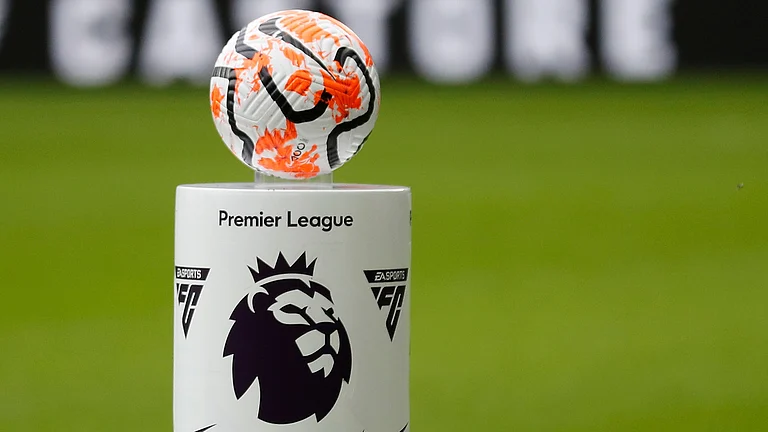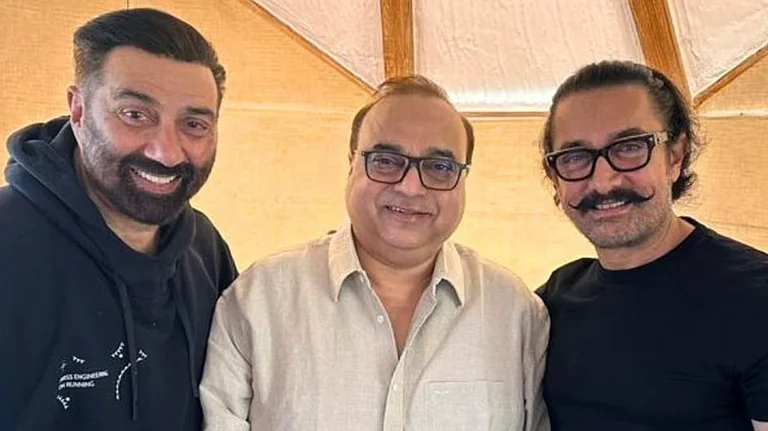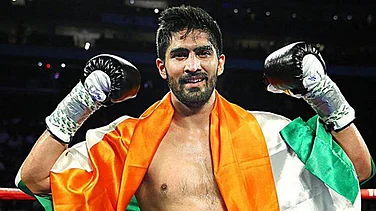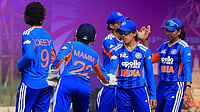Exactly a year ago, on August 7, Indians woke up a little happier than usual, and why wouldn’t they? For the first time ever, an Indian woman was about to wrestle in an Olympic final. It was the day of the final, and it was Vinesh Phogat who had made it to the summit clash in the women’s 50kg category at the Paris 2024 Games. A historic first, and yet, with her, it felt inevitable. Everyone was ready to hear the national anthem play. What could possibly go wrong?
And then came the news, the kind that landed like a slam on the mat. The one who had carried the weight of a sport, a surname, and a nation’s belief was out. Disqualified. Over 100 grams. Just 100 grams, less than a handful of feathers, lighter than an apple, yet somehow heavier than an Olympic medal.
She was disqualified from a final she had earned through blood and sweat, quite literally.
Fighting Battles On And Off The Mat
Her journey to Paris was about far more than just training. Over the past year, she had stood firm as part of the wrestlers’ protest, fought back from knee surgery, and navigated the Olympic quota system while competing in an unfamiliar weight category.
Against all odds, Vinesh chose to enter the 50kg trials and earned her place. At the Paris Olympics, she faced the seemingly unbeatable Japanese world and Olympic champion Yui Susaki in her opening bout, a wrestler undefeated in 82 international matches. But Vinesh stunned the world by outwrestling her 3-2, handing Susaki her first-ever international defeat. From there, it looked like a walk in the park.
In the final, the unseeded Vinesh was set to face USA’s Sarah Hildebrandt. But that match never took place. Even when everyone just wanted the news to be fake the confirmation came.
The Indian Olympic Association (IOA) issued a statement on Phogat’s disqualification: “It is with regret that the Indian contingent shares news of the disqualification of Vinesh Phogat from the Women’s Wrestling 50kg category. Despite the team’s best efforts through the night, she weighed in a few grams over 50kg this morning. No further comments will be made by the contingent at this time. The Indian team requests respect for Vinesh’s privacy and would like to focus on the competitions at hand.”
It wasn’t just a message. It was the first direct confirmation, and it hit like a punch to the gut.
What followed was predictable, yet painful. The silence didn’t last. The blame game began, rumours about the dietitian, whispers of internal lapses, questions about accountability. Vinesh said nothing at first.
Then, in a heart-wrenching social media post addressed to her mother, she wrote, “Ma, wrestling has won, I have lost. Please forgive me, your dreams and my courage, everything is broken. I don't have any more strength now. Goodbye wrestling 2001–2024. I shall be indebted to you all. Forgive (me).”
But to keep the hope alive of at least a silver medal, The Indian team filed an appeal with the Court of Arbitration for Sport (CAS), citing the negligible weight overage.
But on August 19, CAS released its 24-page judgment. It called the UWW rule "draconian," but ruled that athletes must remain under their designated weight limit, no exceptions. "While the Panel is sympathetic to the Athlete’s circumstances, the UWW rules are unequivocal," the verdict read. The appeal was rejected. Vinesh’s Olympic dream was officially over.
And yet, when she returned to India, there was no backlash. No media trials. No angry punditry. Instead, she was welcomed like a hero. Crowds gathered at airport, fans cheered in her hometown, and voices from across the country hailed her not for a medal, but for her courage, honesty, and heart.

“The love and respect I have received are worth more than 1,000 gold medals,” she said, hinting that perhaps, someday, she might return to chase the medal that slipped through her fingers.
From Wrestling To Politics: Vinesh Finds A New Arena
But heartbreak has strange ways of shaping destiny. Wrestling’s loss became politics’ gain.
Weeks later, Vinesh contested the Haryana Assembly elections from the Julana constituency on a Congress ticket. On result day, she emerged victorious by over 6,000 votes.
The fighter had found a new arena. “This is the fight of every girl, every woman who chooses the path to fight,” she said after her win. “This is the victory of every struggle, of truth. I will maintain the love and trust that this country has given me.”
Her transition wasn’t just political, it was symbolic. An athlete who had spent her entire life fighting battles on the mat now vowed to take those battles in own hands. For equality, dignity, and justice, and all for women. Vinesh Phogat, the wrestler, may have hung up her singlet. But Vinesh Phogat, the fighter, is far from done.
Will Vinesh Wrestle Again?
So yes, Paris didn’t end the way it should have. There was no gold. No anthem. No final bout. Just the silence of what could’ve been. But in that silence, a nation heard something else, a woman who had given it everything. And in return, she got not just applause, but a place in the hearts of millions.
But is that really it, then? Has the curtain truly fallen on her wrestling journey? Is this how it ends for one of India’s greatest wrestlers?
There’s still hope, strong, stubborn hope, that one day, Vinesh will step back onto the mat. Not because she has to. But because she can.
To finish what she started.
To claim what Paris nearly gave her.
Olympic glory.
But why this hope? Because in the end, it is Vinesh Phogat we are talking about.
























